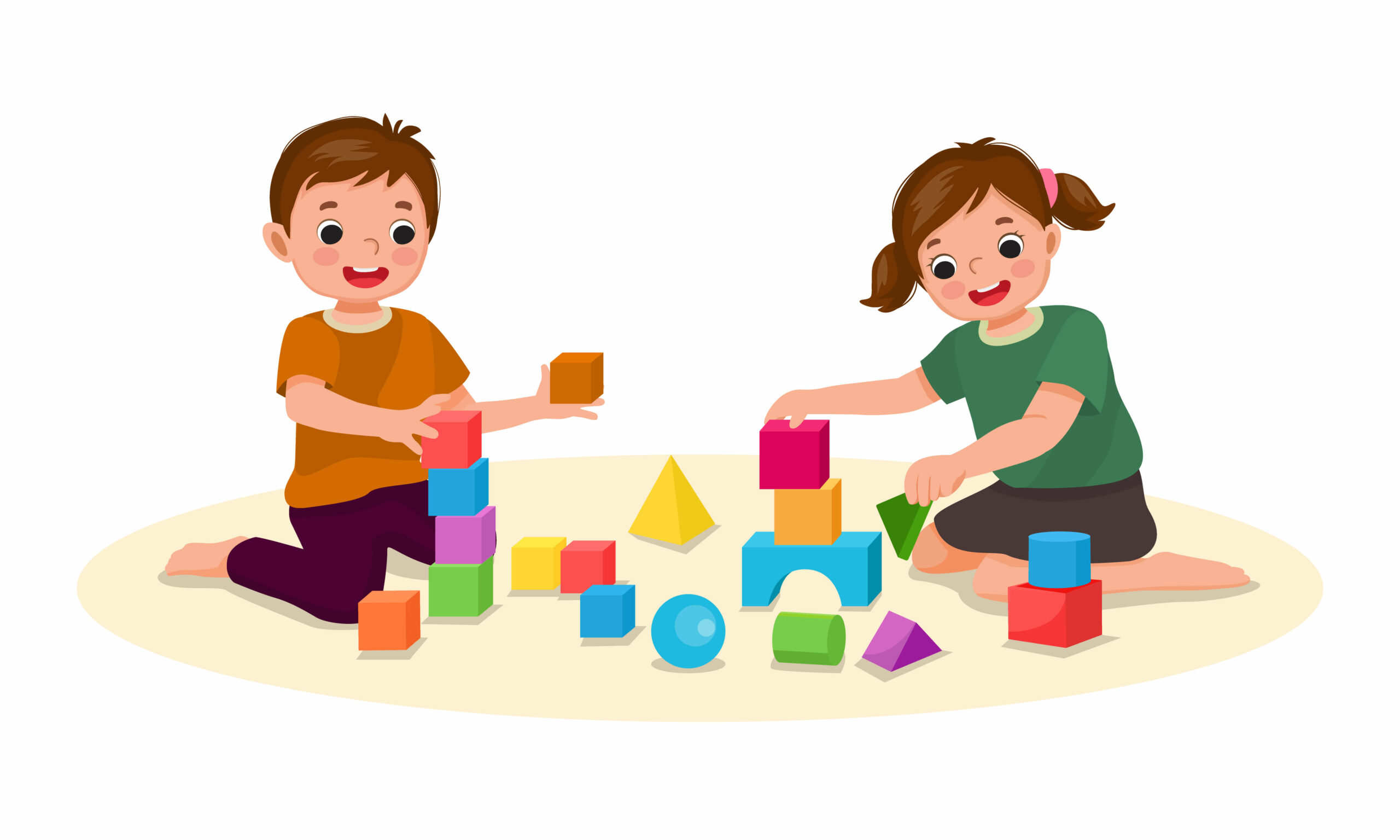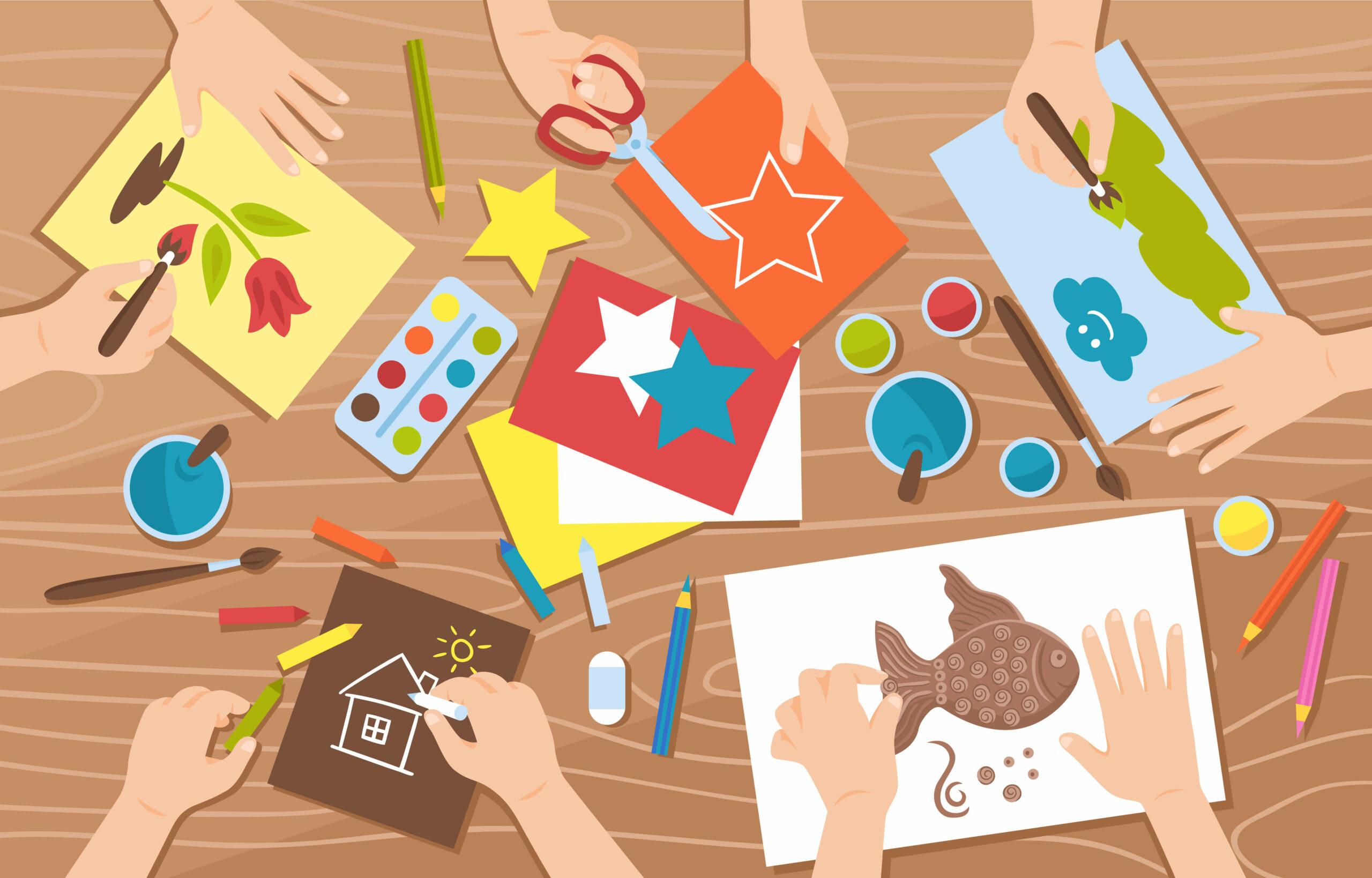In this blog, we discuss how parents and educators can unlock the potential of young children. The topic of this article revolves around fine motor skills, a fascinating subject on precise hand movements necessary for tasks such as writing, drawing, and self-care. Fine motor skills activities can help support fine motor development while fostering creativity and autonomy in children’s behaviour simultaneously. Fine motor development forms an important part of a child’s overall development, and there are many things you can do to support your child’s fine motor development.
Also Read: Exploring Letters and Sounds: Early Literacy Skills in Kindergarten
Understanding Fine Motor Skills
Young children master complex tasks that demand extreme precision primarily through their adeptness in manoeuvring small muscles positioned within their hands, fingers, and wrists. The development of fine motor skills establishes these types of abilities—a commendable milestone for any young child. These skills play a crucial role in academic success, self-care, and independence. By nurturing their fine motor development, you provide your child with a solid foundation for future growth and achievement. As they refine their fine motor skills, they gain the ability to hold a pencil, tie shoelaces, manipulate small objects, and engage in various activities that require dexterity and control. So, let’s explore the fascinating world of fine motor skills and discover how we can support their development in kindergarteners.
Also Read: When to Start Kindergarten: Advantages and disadvantages of starting kindergarten late
Engaging Fine Motor Activities:
Playdough Fun:
Playing with playdough offers a fantastic opportunity for children to strengthen their fine motor skills. Encourage your kindergartener to roll, squeeze, pinch, and mould the dough, which requires precise hand movements. You can enhance the experience by incorporating cookie cutters, rolling pins, or even natural materials like leaves and flowers to add texture. This hands-on activity will stimulate creativity while developing hand strength and coordination.
Sensory Bins:
Sensory bins provide a multisensory experience that supports fine motor development. Fill a container with materials such as rice, beans, sand, or water and add small toys, scoops, and containers. Invite your child to explore, pour, scoop, and transfer the objects using their fingers or tools. Not only will this activity refine their hand-eye coordination, but it will also heighten their sensory perception.
Bead Threading:
Bead threading is a classic fine motor activity that promotes hand-eye coordination and finger dexterity. Provide your child with a tray of colourful beads and a string. Guide them as they thread the beads onto the string, encouraging them to create patterns or sequences. This engaging task enhances concentration and precision while honing their fine motor skills. The process of manipulating the beads and stringing them together fosters their ability to control and coordinate their hand movements, resulting in improved fine motor control.
Paper Collage:
Engage your kindergartener in a collage project using torn paper, scissors, and glue. Encourage them to cut or tear small shapes from coloured paper and arrange them into a picture or design on a larger sheet. This activity not only develops their hand strength and control but also nurtures their creativity and visual-spatial skills. As they manipulate the scissors and glue, they practise precise hand movements and hand-eye coordination. The process of arranging and adhering to the paper pieces allows them to express their imagination while refining their fine motor skills.
Dot-to-Dot:
Engage your child in dot-to-dot activities, where they connect numbered dots to reveal a hidden picture. This fun exercise enhances hand-eye coordination, fine motor control, and number recognition. By guiding their hand movements to connect the dots in the correct order, they refine their fine motor skills and develop a sense of spatial awareness. Dot-to-dot activities also provide a cognitive challenge as children practice sequencing and counting skills. You can find printable dot-to-dot worksheets online or create your own by drawing simple shapes or objects.
Also Read: Tips for Smooth Kindergarten Transitions: From Home to School
Incorporating Fine Motor Skills in Everyday Life:
Beyond specific activities, you can seamlessly integrate fine motor skill development into your child’s daily routine. Encourage them to button their own shirts, tie their shoelaces, or fasten zippers. Provide opportunities for pouring their own drinks or using utensils during mealtime. Such tasks refine hand coordination, finger strength, and independence. It is beneficial to promote independence in daily tasks as it aids in the growth of fine motor abilities while also building a feeling of achievement and self-esteem in your child who is entering kindergarten. By including these activities in their daily schedule, you offer your children meaningful chances to improve their fine motor abilities, which can be advantageous for their future growth and development.
Also Read: 10 Life Skills Activities for Kindergarten Students
Conclusion:
As you fulfil your responsibility as a parent or educator remember the essential role you play in nurturing your kindergarteners’ fine motor development. With these amusing and absorbing activities incorporated into their everyday life, you can help provide valuable opportunities for them to sharpen their dexterity. Remember to be patient, offer guidance when needed, and celebrate their progress along the way. To enable our children’s growth and success we must empower them with adequate skills. Act now by providing your child with opportunities that improve their fine motor abilities. Remember, your consistent involvement and support will significantly impact their progression towards development.
Fine motor skills are essential for a child’s overall development, enabling them to perform tasks with precision, control, and independence. Through engaging activities like playdough fun, sensory bins, bead threading, paper collage, and dot-to-dot, you can actively promote the development of fine motor skills in your kindergartener. Additionally, integrating fine motor skill development into everyday tasks empowers them to become more self-reliant and confident. Nurture your child’s fine motor skills by capitalising on these valuable opportunities. Through this, you are able to witness their progress and thrive in their abilities.
At Euroschool, we understand that fine motor skills are essential for academic success and personal autonomy, and we are committed to providing our students with the tools and resources they need to develop these skills.











